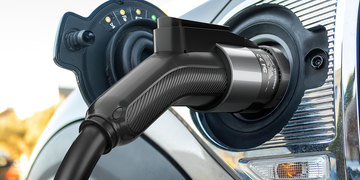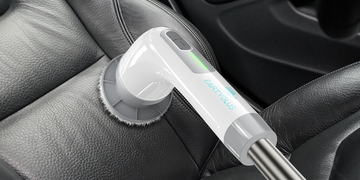Choosing the best Level 2 Electric Vehicle (EV) car charger involves considering several factors to ensure compatibility, safety, and convenience. Here are some key considerations:
Compatibility with Your EV:
Ensure that the charger is compatible with your specific electric vehicle. Most Level 2 chargers use the standard SAE J1772 connector, but some vehicles may require an adapter.
Charging Power (kW):
Level 2 chargers come in different power ratings, typically ranging from 3.3 kW to 19.2 kW. A higher power rating allows for faster charging. Choose a charger that provides an appropriate balance between charging speed and your vehicle's charging capabilities.
Installation Requirements:
Consider the installation requirements of the charger. Some may need professional installation with electrical work, while others are more plug-and-play. Assess the electrical capacity of your home and ensure that the installation is feasible and complies with local electrical codes.
Cord Length:
The length of the charging cable is crucial. Ensure that it's long enough to reach your vehicle comfortably. Keep in mind the location of your charging port and the charger's installation location.
Smart Features:
Look for smart features such as Wi-Fi connectivity, mobile apps, and scheduling capabilities. These features can allow you to monitor and control your charging remotely, schedule charging during off-peak hours, and receive notifications.
Safety Certifications:
Ensure that the charger has safety certifications from relevant authorities. Look for certifications such as UL (Underwriters Laboratories) to ensure the charger meets safety standards.
Warranty:
Check the warranty offered by the manufacturer. A longer warranty period can provide peace of mind and indicates the manufacturer's confidence in the product.
Outdoor use
Weatherproof design. If you plan to install the charger outdoors, look for models designed to withstand various weather conditions. These EV chargers typically possess robust weatherproofing features, ensuring they function reliably in rain, snow, and extreme temperatures. For those living in regions with cold winters, it's essential to also consider the impact of cold weather on electric cars and their charging performance to ensure a seamless charging experience year-round.

What is a Home EV Charger?
A home EV charger, specifically a Level 2 charger, is a device designed to recharge your electric vehicle quickly and efficiently. Unlike standard Level 1 chargers that come with most EVs and plug into a standard household outlet, Level 2 chargers use a 240-volt circuit to deliver a higher charging rate. This results in significantly faster charging times, making Level 2 chargers the preferred choice for most EV owners.
How to install a Level 2 charger at home
Installing a Level 2 Charger at Home
Installing a Level 2 charger at home is an excellent way to ensure convenient and efficient charging for your EV. There are two primary options for installation: hardwired and non-hardwired. Let's discuss both methods:
Hardwired installation
A hardwired installation involves permanently connecting your Level 2 EV charging station to your home's electrical system. This method provides a dedicated and clean charging solution. It typically requires professional installation to ensure compliance with electrical codes and safety standards. A licensed electrician will inspect your electrical panel to determine if it can support the charger's amperage, and they may need to upgrade your electrical service if necessary. While hardwired installations can be costlier due to installation fees and potential electrical upgrades, they offer the advantage of a fixed, secure charging station. However, they lack mobility and flexibility, making them suitable for homeowners who don't plan to move their charging stations.
Non-hardwired installation
Non-hardwired installations offer a more portable and cost-effective solution. These chargers can be plugged into a standard electrical outlet, typically using a National Electrical Manufacturers Association (NEMA) 14-50 plug. They are more suitable for renters or those who may want to move their chargers in the future. While non-hardwired chargers are more budget-friendly and don't require professional installation, they may have limitations on amperage and charging speed. Proper cable management is essential with non-hardwired setups to ensure the charging cable is neatly stored when not in use. This method provides convenience and flexibility, especially for those with changing living situations or who prefer a DIY approach to installation.
How to Choose the Best Level 2 EV Car Charger
Introducing the Telgeoot EV Charger: your ticket to a seamless and electrifying journey!
Tired of the endless waiting at public charging stations? Say goodbye to those inconveniences with our cutting-edge Telgeoot EV Charger. Designed with your ultimate convenience in mind, this state-of-the-art charger takes electric vehicle charging to new heights.

· Up to 44 mi of range added per hour at 11 kW / 48 amp output
· Auto-sensing handle to open charge port
· Monitor and manage your charging schedule and usage from the Tesla app
· Wi-Fi connectivity for over-the-air updates, remote diagnostics and access controls
· Versatile indoor / outdoor design
· Variable amperage configurations depending on installation location
· Power-share with up to six Wall Connectors
· 19.6-foot cable length
· One-year warranty for residential use
Built to withstand the toughest environments, this charger is a perfect companion for both urban explorers and nature enthusiasts alike. Rain, snow, or scorching heat – this charger can handle it all, ensuring a reliable charge wherever your adventures take you. Get yours today and elevate your electric vehicle experience to electrifying heights!





